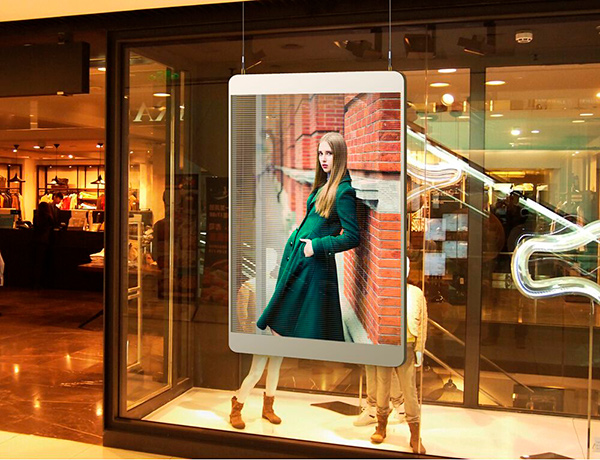Today, LED screens are common as window displays in major shopping streets and shopping malls. However, small and medium-sized businesses can also gain many marketing advantages from digital screens. Here are a few benefits of switching from traditional advertising to LED screens.

Enhanced brightness and clarity for extra visibility
LED displays provide an unrivalled brightness and clarity, so they are clearly visible whatever the environmental conditions or the time of day. This means that they can attract attention from longer distances and stand out in a crowded area.
The vibrant colours and potential to use animations or other moving graphics can catch the eye of pedestrians who might otherwise have walked straight on by. For small business owners, this can mean the difference between people stopping and browsing inside the store, or walking past.
The clarity of the displays and depth of colour means that images and text will be crystal clear, instantly comprehensible and engaging.
Highly customisable content
The versatility of LED screens is another huge advantage for small businesses who are trying to stand out from the crowd. The screens can display a continuous stream of varied content to keep passers by engaged and interested.
The content can be refreshed with a few simple actions, avoiding the laborious and time consuming process of having to design, print and install traditional signage each time. A digital display can help a small business to become more agile and responsive to changing market conditions.
For example, it is much quicker and easier to customise content for seasonal relevancy and events. It can also be used to create content that is specific to the time of day or even the weather conditions, such as a cafe offering hot soups on chilly winter lunchtimes, or iced tea on summer afternoons.
The content can also be tailored to the local area, for example to support local events such as fairs or festivals, or community initiatives such as fundraising efforts for local groups and charities. This raises the profile of the business within the geographical area, and positions it as a trustworthy and supportive member of the community rather than just another faceless operation.
A wide range of content styles
As well as being highly customisable, the content can be varied and is certainly not restricted to static 2D images or text. For example, it’s possible to display live video footage, animated content, micro animations, and revolving images to draw the eye and keep viewers engaged.
People will instinctively focus on moving images over still ones, so it’s yet another way of attracting attention and encouraging casual browsers to step inside, boosting footfall in the store.
The screens can display social media feeds and be used to share user generated content, such as reviews and testimonials, or to showcase product demonstrations or show the goods being used for their intended purpose. For example, a retailer selling outdoor climbing gear can show live footage of clients scaling rock faces using their equipment, and so on.
The screens can also be used to highlight new arrivals at the store, and showcase exclusive offers and promotions. They can generate a sense of urgency by emphasising one-off or time-limited deals, or flash sales and offers. This can tempt in new customers who may wonder if they are missing out on a bargain.
Cost effectiveness
The LED screens may involve more upfront cost than traditional signage or other advertising mediums, but they represent a good return on investment, for the following reasons:
Lower operating costs: Compared to running older incandescent or fluorescent lighting displays, the cost of running LED screens is significantly lower because they are designed to be energy efficient. Good quality displays are also highly durable and low maintenance, unlike older technologies that require regular services and are prone to being unreliable.
Reduced waste: Businesses who are still relying on posters and other printed materials for signage and marketing will need to frequently physically update or replace the material, and often it is not possible to recycle it due to the nature of the inks or adhesives used. LED screens can be easily updated without the need for constant new signage.

